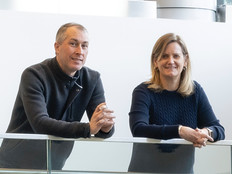Probabilistic Computers: A New Type of Computing
Did you know that atoms in caffeine can exist in 1,048 distinct configurations, also known as quantum states? It’s an atomic structure so complex that classical computers cannot calculate the basic structure of coffee molecules. However, that may soon change, as Purdue University engineers are designing a probabilistic computer that will narrow the gap between classical and quantum computing.
Similar to classical computers, a probabilistic computer can function at room temperature and store information in 0s and 1s. This could be a game changer, considering that quantum computers need very cold temperatures to work.
Since probabilistic computers don’t require new hardware to build, these computers are expected to tackle complex problems decades before quantum computing can.
RELATED: IBM and HBCUs partner in new quantum center.
Similar to quantum computing’s qubits, a probabilistic computer is made of “p-bits,” which can solve optimization problems that are otherwise only solvable by quantum computers.
“Classically, probabilities can only be positive numbers. Qubits, on the other hand, seem to be governed by probabilities that can be negative or even complex numbers,” Supriyo Datta, Purdue’s Thomas Duncan distinguished professor of electrical and computer engineering, said in a release. “But there is a useful subset of problems solvable with qubits that can also be solved with p-bits. You might say that a p-bit is a ‘poor man’s qubit.’”








